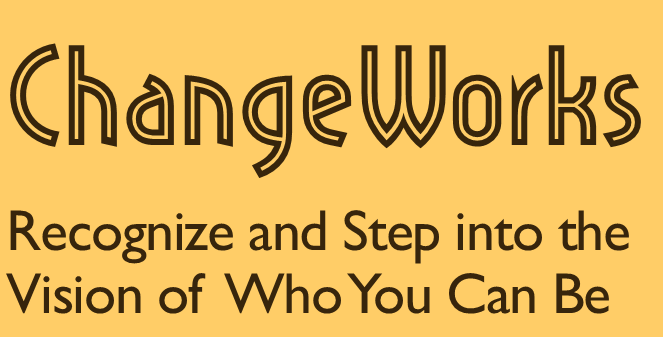Growing up with developmental trauma* can cause patterns of learned helplessness where we shut down, get small, space out, disassociate and eventually get depressed. Another response would be to go into the big one where we puff up and present ourselves as bigger than we are (see “Being the Big One” article https://www.changeworksinc.com/being-the-big-one/). And we can alternate between being the big one and helplessness. This article is dealing specifically with “learned helplessness” and how to shift that pattern.
When we grow up with developmental trauma, we are helpless. We cannot leave our situation because we are children and we have no option but to be exposed to the ongoing abuse and neglect inherent in our lives. We shut down to numb ourselves to the pain. The problem is that when we experience developmental trauma, shutting down can become our way of coping with difficult situations. When we are triggered in the present by something reminiscent of our developmental trauma, the pattern of shutting down is our go-to response. This worked when we were younger to dull the pain, but now that we are adults, shutting down is often a coping mechanism that no longer serves us. It takes us to a place of being small and weak rather than being a healthy adult who is capable of dealing with threatening situations and people. Once we become aware that we are stuck in this pattern, we can learn to create a new neural pathway by consciously responding differently.
The reason we develop such patterns is because we had feelings we didn’t like that we couldn’t escape because we lived with people who didn’t see, acknowledge or validate our feelings. We shut down to avoid the feelings. The first step to changing the pattern is to check in with the inner child part of us to experience and validate the feelings that created the pattern. Allow the feelings; be with them. Experience the sensations in the body that arise when these feelings are present. Doing the CLEAR process (acupressure points and bilateral stimulation) while being with the feelings can help. To try CLEAR, go to https://www.changeworksinc.com/try-clear-now/. See how these feelings impacted you in your life. What beliefs did you develop about yourself as a result? Be with the child part of you and validate the feelings—say to him or her, “of course you would feel this way and develop this pattern.” Comfort him or her and provide the love she didn’t receive when younger. When we can develop a healthy adult who sooths the child, we can begin to develop a pattern of stepping into our strength instead of stepping into our weakness.
The second step, once you feel stronger, is to do something about the threat that is triggering you. Look at how you feel about the person or situation; what do you need? Do you need to get out of the situation? Do you need to change the relationship? Do you need to alter what you share with certain people to keep yourself safe? Do you need to eliminate relationships that make you feel bad? Do you need to set boundaries? Use your feelings as guides. Honor the feelings and create safety for yourself. Choose to see your needs and do something to help, protect, and love yourself. Put yourself first. If you don’t, you are stuck in a child pattern of wanting someone else see your pain and rescue you/take care of you. There is more about this dynamic in the article, “Being a witness to self” at https://www.changeworksinc.com/being-a-witness-to-our-suffering/. Imagine yourself stepping out of the fight of protecting yourself and into grace and strength; light and compassion—take care of yourself first and then when you are in a place of strength, you are in a place where you can see and care for others.
* “Developmental trauma causes ongoing autonomic activation that forms chronic patterns that lead to physiological and psychological developmental deficits…with developmental trauma, there is no single traumatizing event, but rather, ongoing experiences of neglect, abuse and misattunement.” (Heller & Lapierre, 2012)
Reference:
Healing developmental Trauma: how early trauma affects self-regulation, self-image, and the capacity for relationship, Laurence Heller, Ph.D. & Aline Lapierre Psyd; North Atlantic Books, Berkeley, California, 2012

